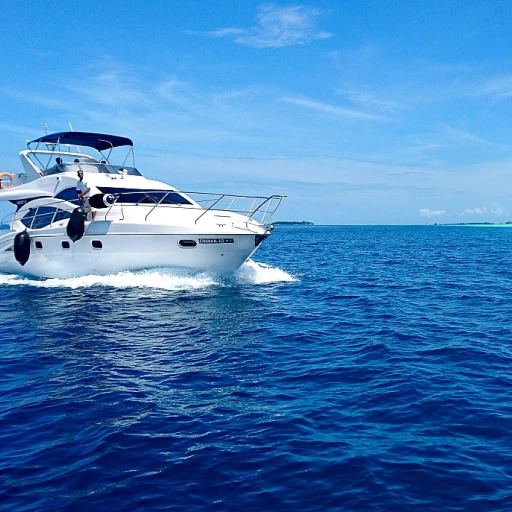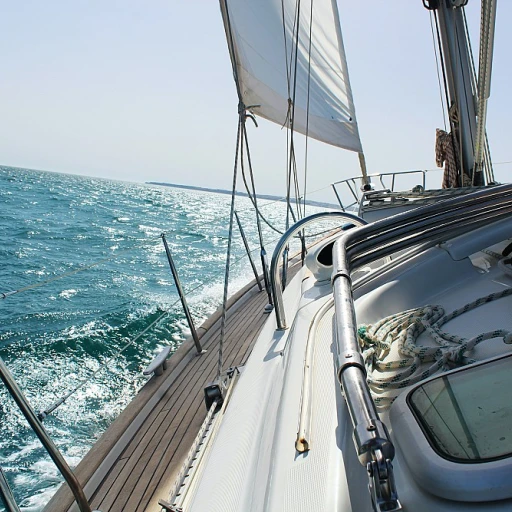
The Art of Optimizing Fuel Consumption on Luxury Yachts
The Mastery of Reducing Fuel Consumption on High-End Yachts
Fuel efficiency is a crucial factor for yacht owners, not only to cut costs but also to adhere to the increasing environmental regulations in the yachting industry. According to a 2021 study, the yacht sector has witnessed a rise in the demand for eco-friendly options, with fuel efficiency being a top priority. By mastering the art of optimizing fuel consumption, proprietors can enjoy extensive marine journeys while reducing their environmental footprint.
Techniques to Minimize Fuel Usage Without Sacrificing Luxury
- Analyze your yacht's propulsion efficiency by conducting regular audits - this helps identify energy-saving opportunities.
- Invest in propeller upgrades or modifications that improve thrust and reduce drag, leading to significant fuel savings.
- Implement a smart energy management system to monitor real-time fuel consumption and optimize the use of onboard electrical systems.
Embracing these strategies could lead to up to a 15% reduction in fuel consumption, as reported by a maritime efficiency expert.
Integrating Expertise with Personal Experience
"Every nautical mile matters," says a seasoned yacht captain. "Often, it's the subtle changes in course or speed, tailored to current marine conditions, that contribute to hefty fuel savings." This approach is supported by the fact that a yacht's operating speed can influence fuel efficiency by up to 50%, as per naval research. By employing savvy maneuvering and attentiveness to speeds, the balance between luxury cruising and fuel consciousness is achievable.
Unlocking Efficiency Through Routine Practices and Checks
Ensuring that your yacht undergoes routine maintenance is vital for sustained fuel efficiency. This includes regular engine checks and hull cleanings, which can lead to purported efficiency improvements of up to 20%. A smooth hull, free of marine growth, experiences less resistance through water, thereby requiring less power and fuel. In this realm, preventative maintenance is not just a technicality; it's a strategic investment in your yacht's performance and longevity.
Smart Routing: Navigating Your Way to Lower Fuel Bills
Charting an Efficient Course: The Role of Yacht Route Planning
Embarking on a sea adventure can be both exhilarating and costly, especially if your course is not set efficiently. Smart routing goes beyond simply plotting a point from A to B; it involves embracing the complexity of marine environments to reduce yacht fuel consumption. Recent statistics suggest that proper voyage planning can lead to a 5-15% savings in fuel usage. Leveraging state-of-the-art navigation software allows you to analyze historical weather data and predict patterns, which in turn helps to optimize your yacht's performance and fuel efficiency.
- Calculating the most efficient speed based on current conditions
- Mapping out alternative passages to avoid adverse weather or strong currents
- Utilizing real-time data for dynamic route adjustments
Fine-Tuning Speed and Timing for Optimal Efficiency
One might overlook the importance of speed when considering yacht fuel efficiency, but the correlation between the two is undeniable. By fine-tuning your vessel's speed and timing, you can capitalize on periods of favorable winds or currents, leading to significant cuts in fuel use. A study by maritime researchers has revealed that even a 10% reduction in speed can result in a 27% decrease in fuel consumption. This strategic approach not only preserves fuel but also extends the engine's longevity, enhancing overall yacht health.
Using Predictive Analytics to Anticipate and Adapt
Yacht owners and captains are increasingly turning to predictive analytics to make informed decisions that impact fuel economy. Advanced systems can forecast the optimal departure times and ensure that you are cruising at the best possible conditions. With predictive routing technology, the data-driven insights you receive are not just estimates but tailored strategies designed to maximize fuel efficiency and reduce operational costs. Quoting a renowned yachting expert, 'The future of yachting lies in harnessing data to sail smarter, not harder.'
Remember, as we delve deeper into optimizing your yacht's fuel consumption and maintaining your engine's health, stay tuned for our discussions on the latest technological innovations and yacht designs that aid fuel efficiency.
Engine Health and Fuel Economy: Maintaining Peak Performance
Ensuring Peak Engine Performance for Better Fuel Economy
At the heart of every luxury yacht's efficiency lies the engine's health. Routine maintenance is not a mere recommendation; it is a necessity for yacht owners keen on optimizing fuel consumption. According to the Marine Engine Report, regular engine check-ups can improve fuel efficiency by up to 10%. This emphasizes the importance of comprehensive engine diagnostics and timely repairs to prevent energy waste.
Upgrading to High-Efficiency Propulsion Systems
Investing in innovative propulsion technologies is another step towards a leaner fuel economy. A study featured in the Yacht Efficiency Analysis found that harnessing advanced systems like pod drives or hybrid engines can yield considerable savings, sometimes cutting fuel costs by a striking 15-20%. As yacht owners, making the switch to more efficient propulsion systems can translate to substantial long-term benefits, both economically and environmentally.
Proactive Engine Management Strategies
- Optimized Speed: Sail at the recommended RPM for your engine. Data indicates that excessive speeds can increase fuel usage exponentially.
- Clean Fuel Filters: Dirty filters can cause engines to work harder, adversely affecting fuel efficiency. Change them regularly to ensure clean fuel flow.
- Engine Tuning: Tuned engines perform better. Yacht Management Insider suggests that annual tuning can lead to a 5% improvement in fuel efficiency.
Green Technologies for Sustainable Yachting
Embracing green technologies isn't just a trendy move; it's smart yachting. With the advent of solar panels and energy management systems, yachts can reduce reliance on fuel by harnessing renewable energy. Boating industry statistics highlight that yachts equipped with solar technology have observed a reduction in fuel consumption by harnessing power for onboard systems, indirectly easing the load on engines.
Technological Innovations: The Future of Fuel-Efficient Yachting
Navigating the Seas with Cutting-Edge Technology
Technological advancements are dramatically reshaping the yachting experience, offering yacht owners a beacon of hope in their quest to enhance fuel efficiency. For instance, the integration of hybrid propulsion systems represents a significant leap in reducing fuel consumption by combining traditional internal combustion engines with electric motors. According to recent statistics, hybrid yachts can see a fuel efficiency increase of up to 30%, a figure that signals a sea change for fuel-conscious owners (Yachts International).
Setting Sail with Advanced Monitoring Systems
Advanced monitoring systems provide real-time data that can streamline a yacht's operation for peak fuel economy. With sophisticated software analyzing every aspect of a yacht's performance, from the trim and ballast to engine use and generator load, proactive steps can be taken to minimize fuel waste. An informative quote by an industry expert states, "Today's yacht monitoring systems are not just about information; they're about actionable insights that lead to tangible fuel savings." Such systems can lead to an impressive reduction in fuel usage by up to 15% for diligent owners who are committed to continuous performance monitoring (Boating Magazine).
Embracing Eco-Friendly Energy Alternatives
The green revolution has not left the world of luxury yachting untouched. Solar panels and wind turbines are increasingly common sights on modern yachts, serving as supplementary power sources. These renewable solutions can reduce the reliance on diesel generators, potentially cutting fuel costs by a significant margin. Imagine the sustainability a yacht could achieve by integrating a solar power system, which, according to market analysis, can offset diesel usage by as much as 20% during daylight hours (Yachting World).
Building Smarter with Computational Fluid Dynamics
The application of Computational Fluid Dynamics (CFD) in the design process allows architects to simulate water flow around the yacht's hull, enabling the creation of designs that slice through the water with minimal resistance. This precision leads to less fuel consumption as the yacht operates more efficiently in its marine environment. A case study demonstrated that yachts utilizing CFD in their design phase have achieved an improvement in fuel efficiency by up to 10%, a testament to marrying form with function ().
Fostering Innovation with Fuel Additives
Fuel additives are another significant contender in the battle against high fuel consumption. These chemical compounds can optimize combustion, reduce engine wear, and lower emissions. Evidence shows that with regular use, fuel additives can improve engine performance and result in a fuel efficiency boost of approximately 5-8%, enhancing the longevity and operation of the yacht's power systems ().
Yacht Design and Construction: Sleek Builds for Less Resistance
Revolutionary Hull Designs that Glide Through Waves
As an expert analyst immersed in the yachting world, one cannot overlook the impact of yacht design on fuel efficiency. Innovative hull designs have emerged as a game changer in reducing drag and enhancing fuel economy. Utilizing advanced computational fluid dynamics (CFD), yacht builders are creating shapes that slice through water with minimal resistance, effectively decreasing fuel consumption. For example, the introduction of wave-piercing bows has been a revelation, offering a smoother ride and fuel savings. Statistics show hull optimization can result in up to a 10-15% improvement in fuel efficiency, depending on the yacht's size and operation.
Lightweight Materials for High-performance Yachting
In the pursuit of maximizing fuel efficiency, the materials used in yacht construction play a pivotal role. The yacht industry is turning towards lightweight composites, such as carbon fiber and advanced alloys. Not only do these materials reduce the overall weight of the vessel, but they also contribute to the yacht's strength and durability. A study by the International Maritime Organization (IMO) suggests that for every 10% reduction in weight, there's an associated 3-7% savings in fuel consumption. This demonstrates the significant potential of high-tech materials in achieving better fuel outcomes.
Integrating Eco-friendly Features into Modern Yachts
Today's yacht owners are increasingly conscious of their vessel's environmental footprint. In response, eco-friendly features are being integrated into yacht design, promising enhanced fuel efficiency without compromising luxury. Solar panels, wind turbines, and hybrid propulsion systems are examples where technology and sustainability intersect. These innovations not only contribute to substantial fuel savings but also offer reductions in greenhouse gas emissions. The use of renewable energy on-board can offset fuel use, with some yachts achieving up to a 20-30% reduction in fuel consumption by using hybrid systems according to recent industry insights.
Customization for Optimal Efficiency
Every yacht is unique, and thus, optimizing fuel efficiency often requires a tailored approach. Customization that considers the owner's specific usage patterns and preferences can result in more meaningful efficiency gains. Tailored propulsion systems, specific fuel-efficient navigational equipment, and custom hull shapes designed for an owner's typical sea conditions can yield impressive fuel savings. Bespoke designs are not just about aesthetic appeal; they are also about creating a yacht that operates at peak fuel efficiency for its intended purpose. Customization, therefore, is not a luxury but a strategic decision in the world of yachting.

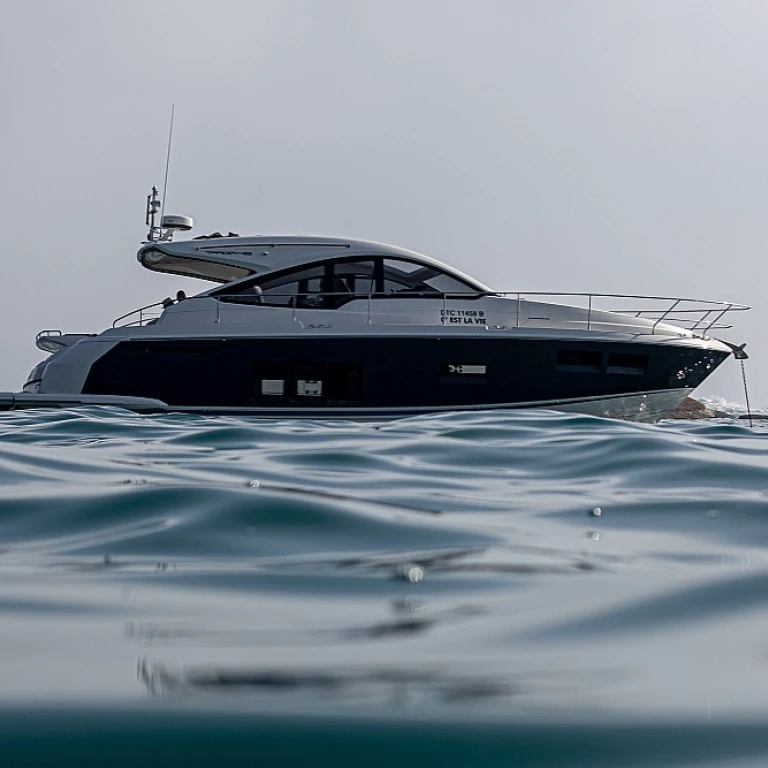
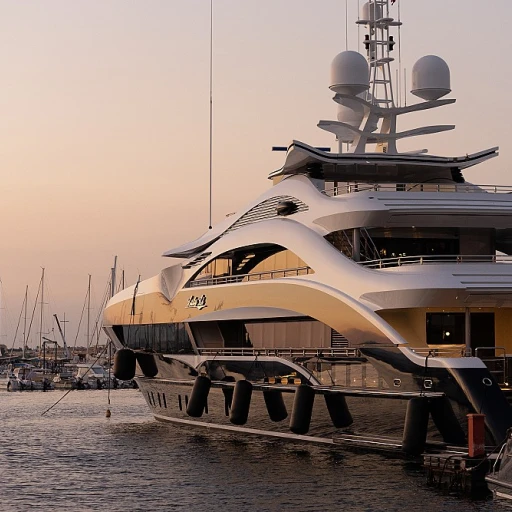

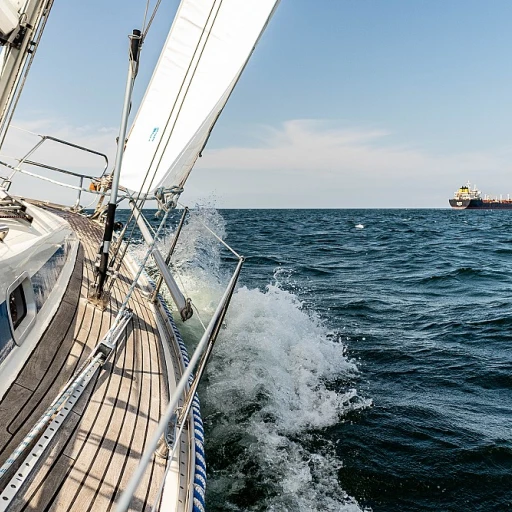
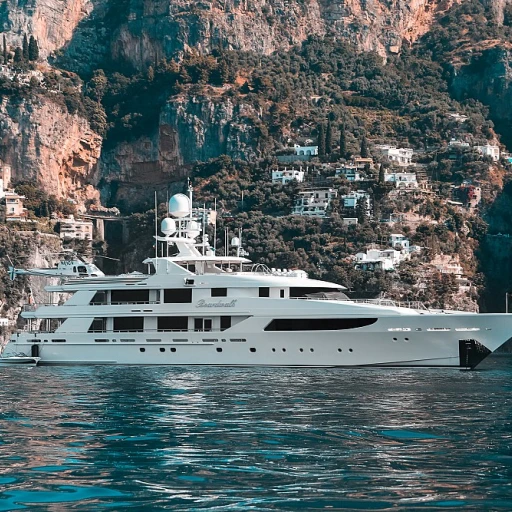
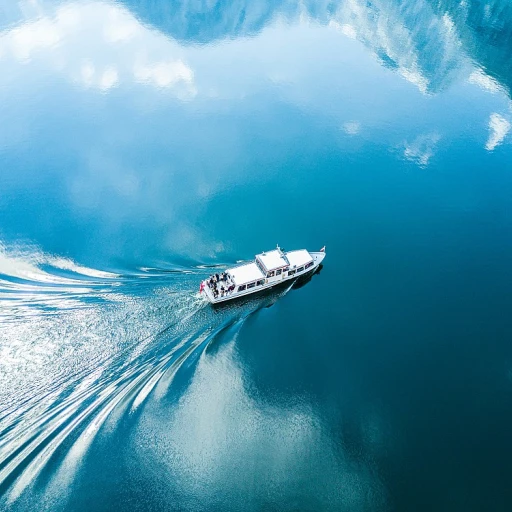
-large-teaser.webp)

